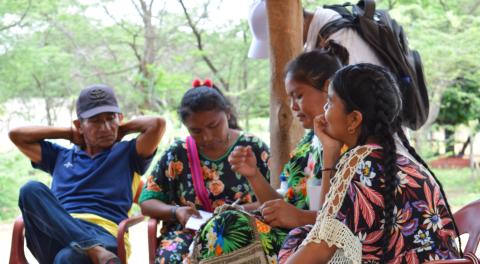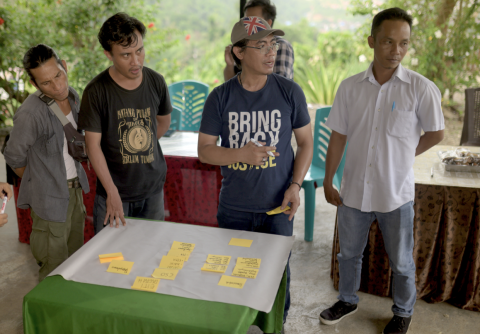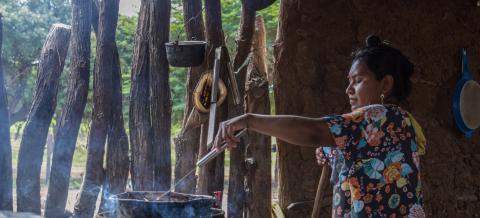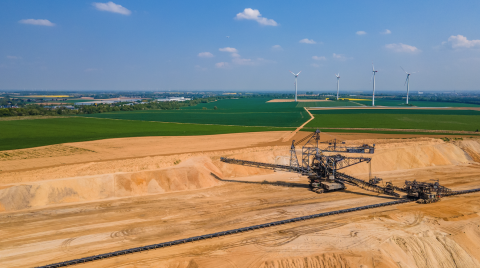
Engaging communities in a just transition: La Guajira, Colombia
Exploring how the energy transition is impacting community livelihoods
This story is part of a global project, “Engaging communities in a just transition”, launched by the EITI in early 2022 with support from the Ford Foundation. Implemented in four communities in Colombia, Ghana and Indonesia, this two-year project explores how the energy transition is impacting community livelihoods and the obstacles that communities face in accessing and using data and dialogue platforms. It seeks to strengthen the EITI’s role in ensuring that community priorities are better taken into account in public debate and decision-making on the energy transition.
La Guajira in pictures
In 2022, the EITI commissioned a photo project on Wayúu communities and renewable energy industry in La Guajira, Colombia.
The community
La Guajira is a department on Colombia’s Caribbean coast. This remote, arid region is home to the Wayúu indigenous community, whose livelihoods have traditionally depended on fishing, subsistence agriculture, hunting and salt mining.
For decades, La Guajira’s economy has been dominated by natural gas extraction and coal mining. It is home to Cerrejón, one of the world’s largest open pit coal mines. The mine’s owner anticipates that production volumes will decline significantly from 2030 onwards, with plans to relinquish mining areas to the government from 2034.
In recent years, La Guajira has seen a major increase in investments by renewable energy companies attracted by the area’s wind and solar potential. In 2004, the Jepirachi wind farm was built, the first of its kind in Colombia. As of 2022, there were 26 renewable energy projects in La Guajira (19 wind and seven solar) in different phases of development.
- Population: 825,364
- Main industries: Fishing, agriculture, salt mining, natural gas, coal
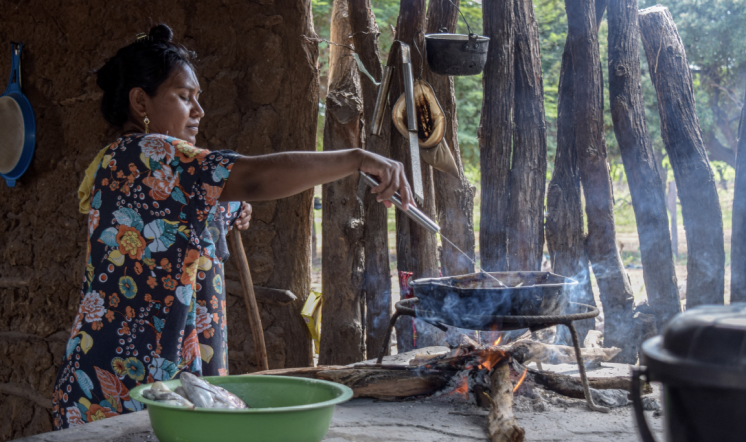
While large electricity projects are being installed in our territories, we have no energy in our homes.
– Eliel de Jesus Castillo, Wayúu leader
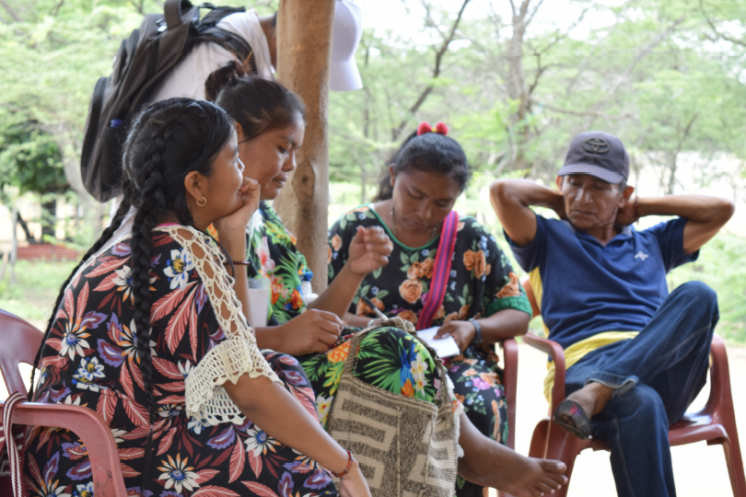
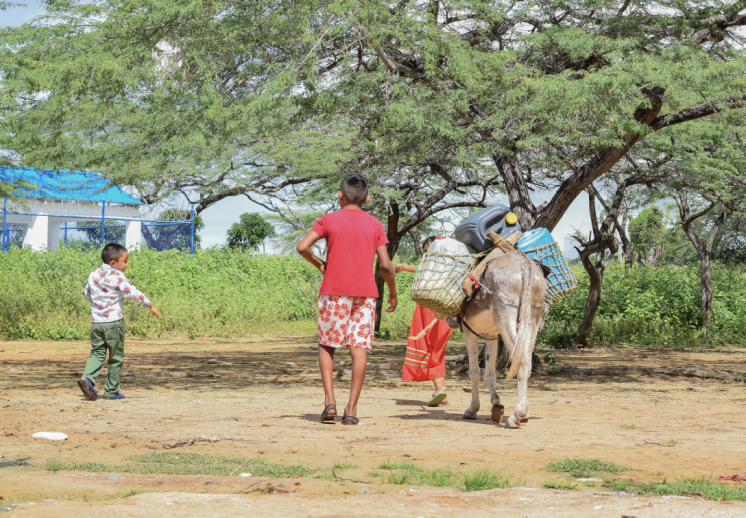
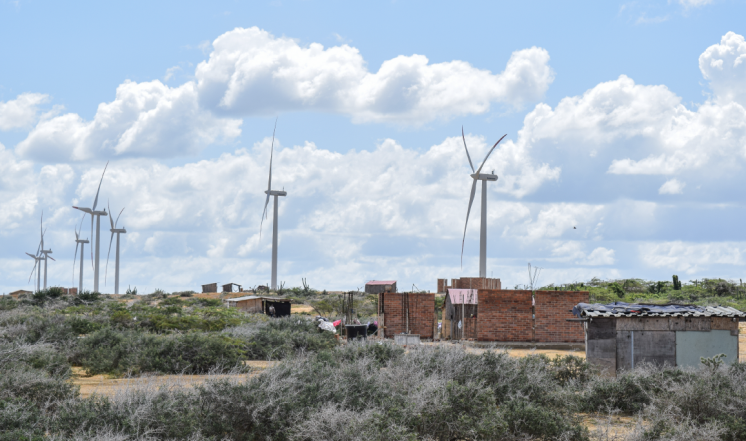
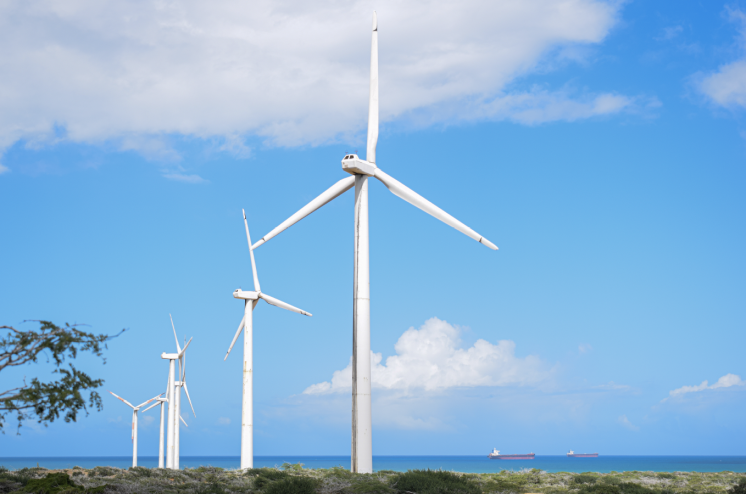
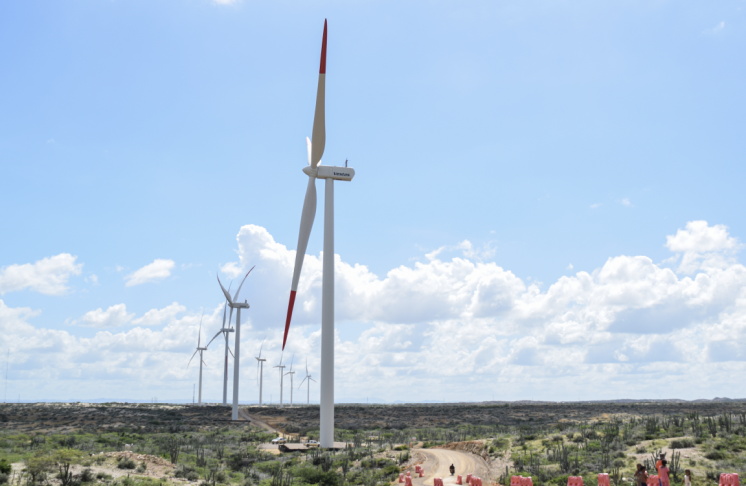
Opportunities and challenges
The coal mining industry is an important driver of La Guajira’s economy. As of 2020, the Cerrejón mine employs more than 5,000 people, mainly from La Guajira and other departments of the Atlantic Coast.
But there are tensions between the mining industry and some members of the Wayúu community. Community concerns have focused on the project’s impacts on land and the environment.
Similar patterns are emerging in the community’s relationship with the renewable energy industry. As wind turbines are installed on their lands, many members of the Wayúu community are concerned about how these projects will impact the surrounding landscape and biodiversity. They fear that previous challenges from the mining industry will be replicated in the context of the boom in renewables investments.
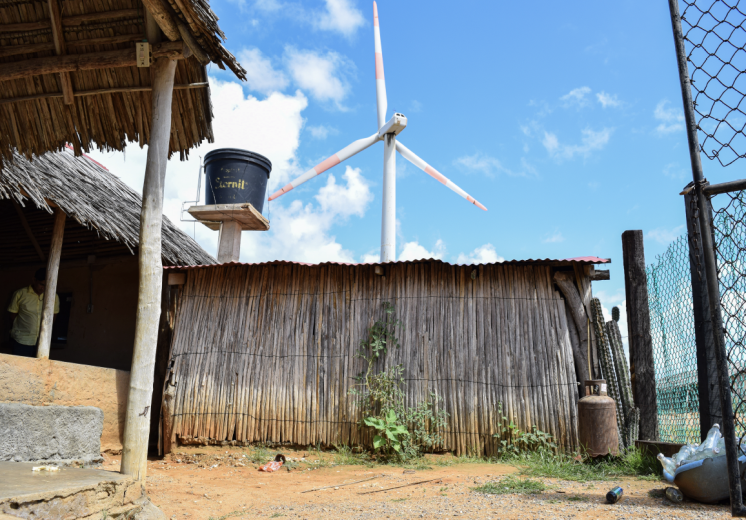
Land tenure in the Wayúu social structure and negotiation with companies is a complex element that can create conflict between communities.
– Odilon Montiel, Traditional “Palabrero” community leader
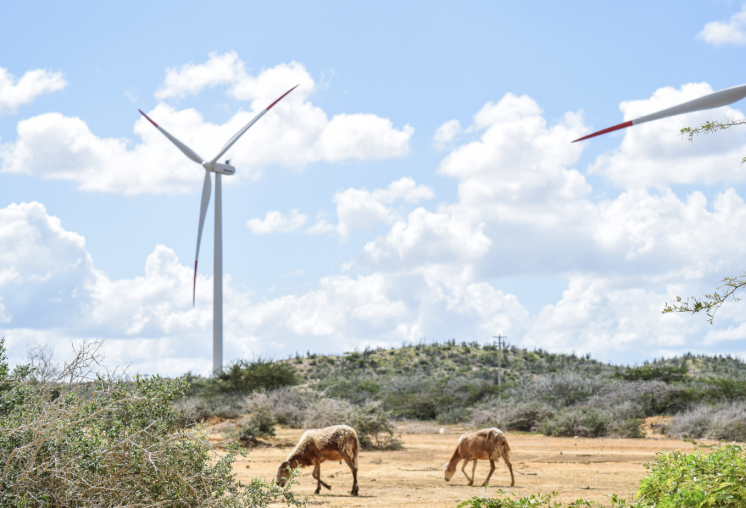
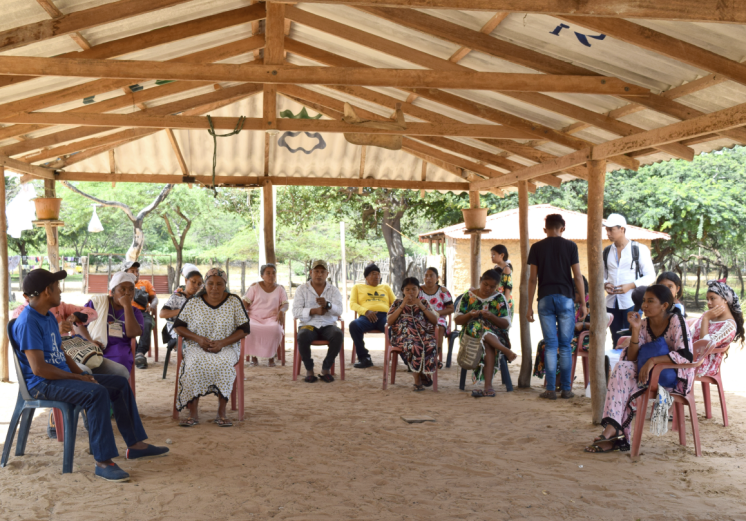
The community has created relationships and is dependent in many ways on this wind farm, and we don’t know what will happen when it is dismantled.
– Nancy Gutiérrez, Community leader
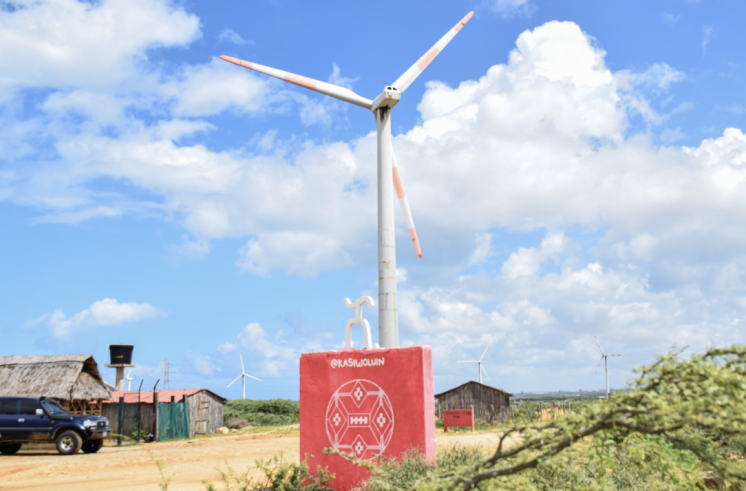
Solutions
Members of the Wayúu community have expressed a strong interest in knowing more about the mining and renewable energy industries. They want information on contracts, royalty payments, and social and environmental impacts. While public data exists, it is scattered and difficult to access, hindering the community’s ability to make informed decisions and engage in consultations and dialogue with government and companies. A lack of capacity to understand and consolidate information, as well as technological and resource constraints, also pose a barrier to accessing and using information.
Stakeholders remarked that the EITI could play a crucial role in making data accessible at the subnational level, including on the renewable sector. Through its multi-stakeholder approach, the EITI could facilitate regular and open dialogue between local communities and authorities, helping to address the impacts of the energy transition and planning for sustainable development.
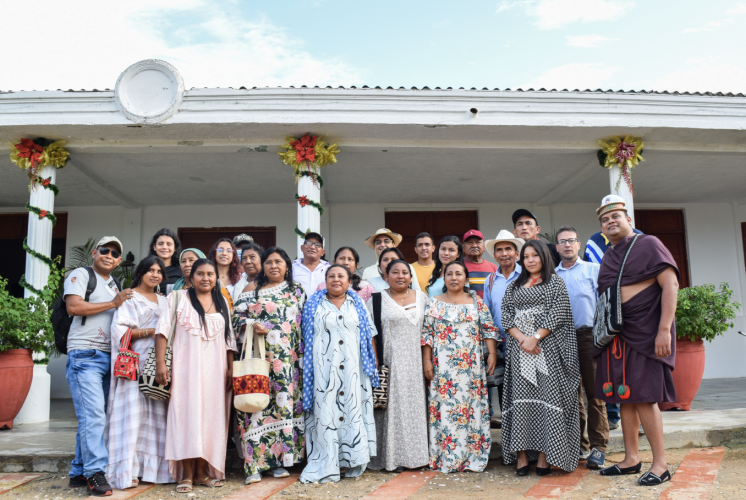
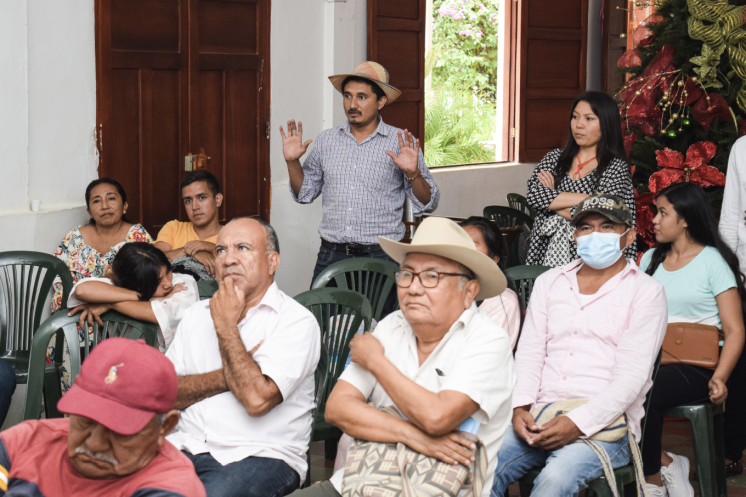
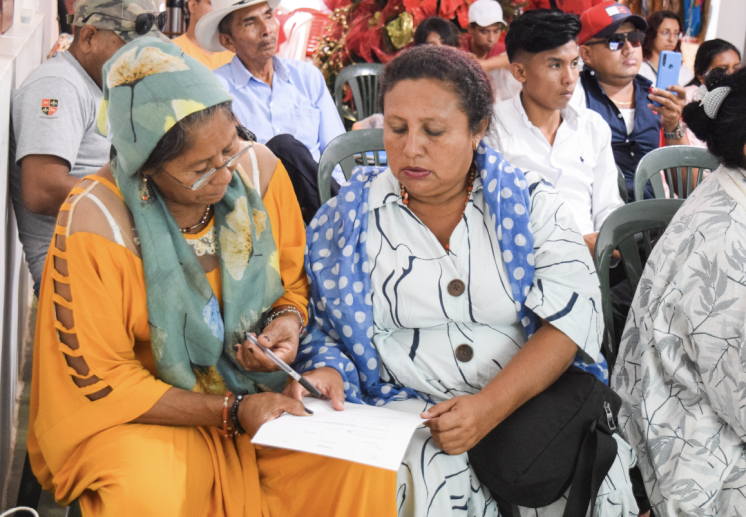
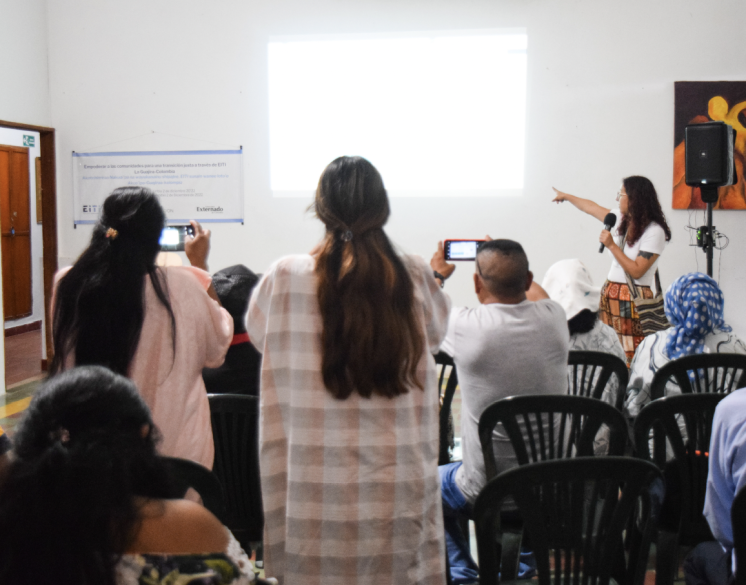
Acknowledgments
Photographer: Nelson David Alonso Charry
Project consultant: Universidad Externado De Colombia
